Description
In Depth
Immune μBiomic by Alimentum Labs is a groundbreaking probiotic formulation designed to fortify and regulate the immune system by addressing the crucial gut-immune axis. This axis plays a pivotal role in balancing immune responses and preventing chronic inflammation and autoimmune reactions.
Over 15 years of meticulous research on the human microbiome has led to the cultivation of keystone probiotic species that are exclusive to Alimentum Labs. These probiotics modulate the gut-immune axis, providing more control over persistent autoimmune reactions and overgrowth of pathogenic microbes. The unique strains found in Immune μBiomic including Roseburia hominis, Bacteroides uniformis, Collinsella aerofaciens, Bacteroides ovatus, and Anaerostipes caccae, are strictly anaerobic, thriving in oxygen-depleted environments and offering sustained benefits by colonizing specific niches within the gut.
Immune μBiomic not only supports autoimmune regulation but also combats difficult infections, manages food sensitivities, supports cellular health, and promotes a balanced gut microbiome.
Key Features
- Roseburia hominis supports a robust immune system by producing key compounds like butyrate and propionate, which interact with our genes to regulate immune responses. This microbe enhances the expression of genes related to immune functions, including those that influence the production of antimicrobial peptides, gut barrier function, toll-like receptors signaling, and T cell biology, all which contribute to a strengthened gut and immune system.
- Bacteroides uniformis plays a crucial role in promoting a strong immune system by producing immune-supporting compounds like butyrate and γ-aminobutyric acid (GABA) through the breakdown of dietary fibers. These compounds help reduce inflammation, fine-tune immune cell activity, and enhance the integrity of the gut lining, contributing to overall immune health.
- Collinsella aerofaciens, a commonly lacking gut microbe, plays a vital role in supporting a healthy immune system. It has been demonstrated that restoring and maintaining the population levels of this beneficial gut microbe supports a strong immune system by addressing gastrointestinal distress symptoms and promoting gut health, which is essential for overall immune function.
- Bacteroides ovatus fortifies the immune system by downregulating receptors used by certain viruses to enter cells, boosting mucosal antibody production, and producing compounds like butyrate and γ-aminobutyric acid (GABA) that help regulate immune responses and calm potential inflammation.
- Anaerostipes caccae promotes a healthy immune system by acting as an early colonizer of the human microbiome, preventing allergic responses to food items like cow’s milk, and upregulating the expression of mucin-degrading genes to enhance gut lining healing and immune system function.
White Paper
The White Paper is your comprehensive guide to understanding this product. It details the ingredients, their functions, and how they work together to deliver results. Complete with usage guidance and safety information, it’s an invaluable resource for anyone seeking a thorough understanding of this formula.
Essential Ingredients
- Roseburia hominis
- Bacteroides uniformis
- Collinsella aerofaciens
- Bacteroides ovatus
- Anaerostipes caccae
Directions
Take 2 capsules daily, or as directed by your health care provider. Refrigerate after opening.
Warnings
Keep away from heat, sunlight, and out of the reach of children.
Quality Guarantee
cGMP facility
Vegan
Non-GMO
Gluten Free
Dairy Free
No Sugar
Frequently Asked Questions
Who should take Immune µBiomic?
Immune µBiomic is suitable for individuals looking to support a healthy immune system, regulate immune responses, address autoimmune conditions, manage difficult infections, enhance gut health, and maintain overall well-being.
How should I take Immune µBiomic?
For optimal benefits, take 1-2 capsules of Immune µBiomic daily, with food, for a duration of 30 days. Consider complementing your regimen with the synergistic prebiotic, Immune Superfood. Keep in mind that individual needs may vary, so it’s advisable to consult your practitioner before making any adjustments to the prescribed doses or protocols.
Can I take Immune µBiomic with other supplements?
Yes, you can generally take Immune µBiomic with other supplements. In fact it is recommended to include Alimentum Lab’s other immune products, such as ImmuneGenic and Immune Superfood, with it to experience optimal results. However, it’s always recommended to consult with your health care practitioner to ensure there are no potential interactions or conflicts between Immune µBiomic and your other supplements, considering your individual health status and specific needs.
Can I take Immune µBiomic if I'm pregnant?
No, it is not recommended to take Immune µBiomic if you are pregnant. It’s always advisable to consult with your health care practitioner before using any supplements during pregnancy to ensure the safety of both you and your baby.
Why are the keystone probiotic species important for supporting a healthy gut-immune axis?
The keystone probiotic species are essential for supporting a healthy gut-immune axis because they play crucial roles in modulating and correcting the delicate balance between immune activation and immune tolerance. These unique probiotics contribute to essential aspects of immune system wellness such as regulating immune responses, maintaining gut barrier integrity, inducing tolerance, and supporting the function of regulatory T cells. By fostering a balanced immune response and preventing gut barrier compromise, the keystone probiotic species help mitigate autoimmune reactions and enhance the body’s defense against infections. Their exclusive presence in Immune µBiomic distinguishes it as a product specifically designed to address and correct imbalances in the gut-immune axis.
How does Immune µBiomic modulate autoimmune reactions?
Immune µBiomic modulates autoimmune reactions through various mechanisms associated with probiotic activity. Probiotics in Immune µBiomic contribute to immune regulation, inflammation control, maintenance of gut barrier integrity, induction of tolerance, and the regulation of regulatory T cells. By promoting a balanced immune response and preventing gut barrier compromise, these probiotics help mitigate autoimmune reactions. They play a vital role in regulating the immune functions of the gut and immune cells, influencing antimicrobial peptides, gut barrier function, toll-like receptors (TLR) signaling, and T-cell biology. Additionally, the probiotics in Immune µBiomic may support the reduction of inflammation, fine-tune immune cell activity, and bolster the integrity of the gut lining, all of which contribute to the modulation of autoimmune reactions.


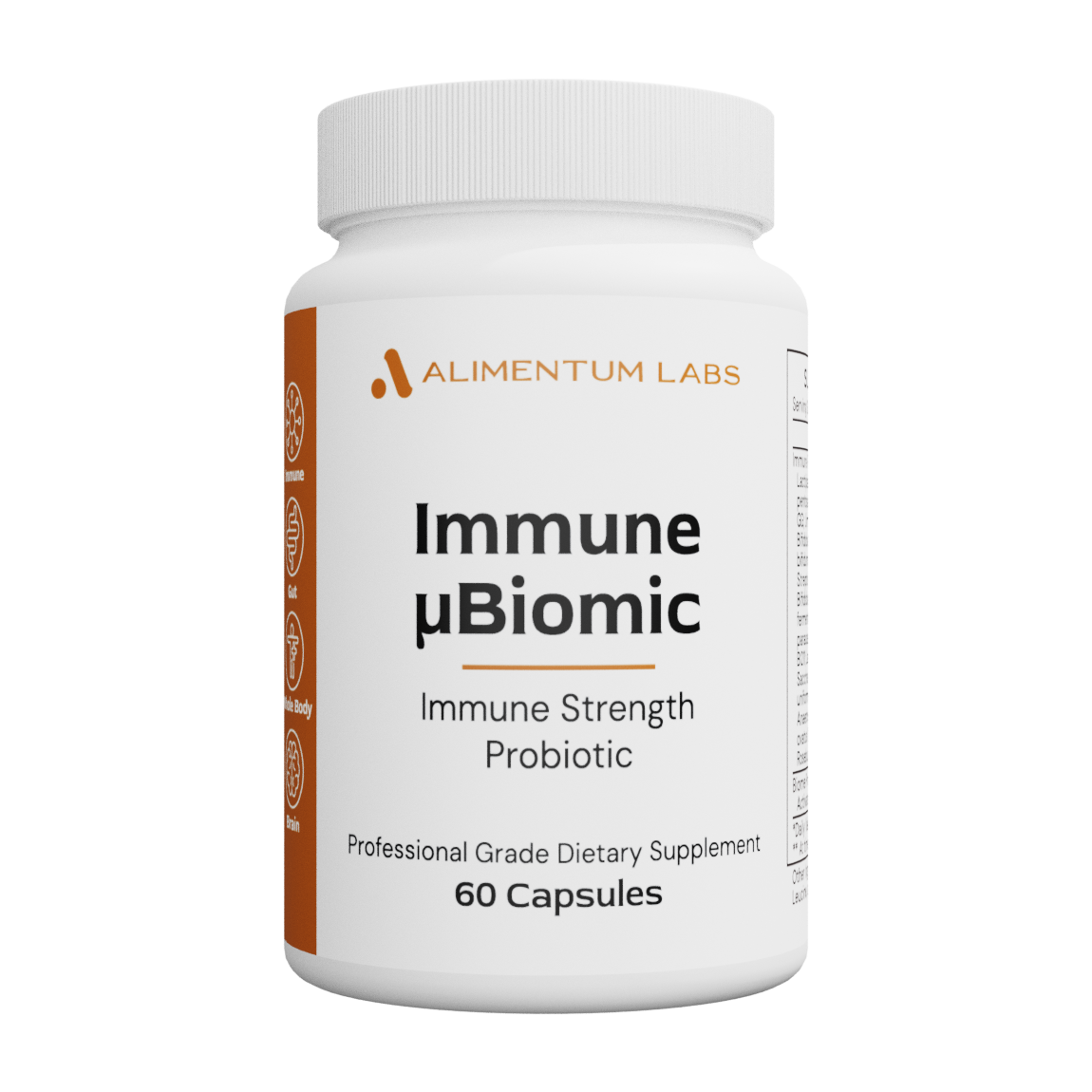
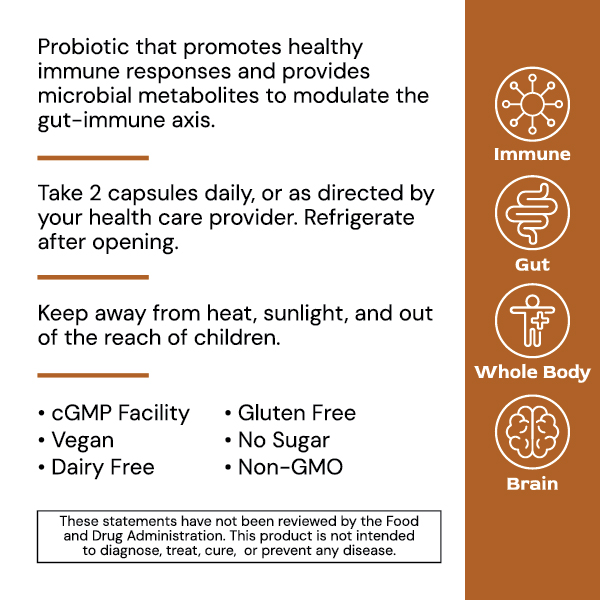
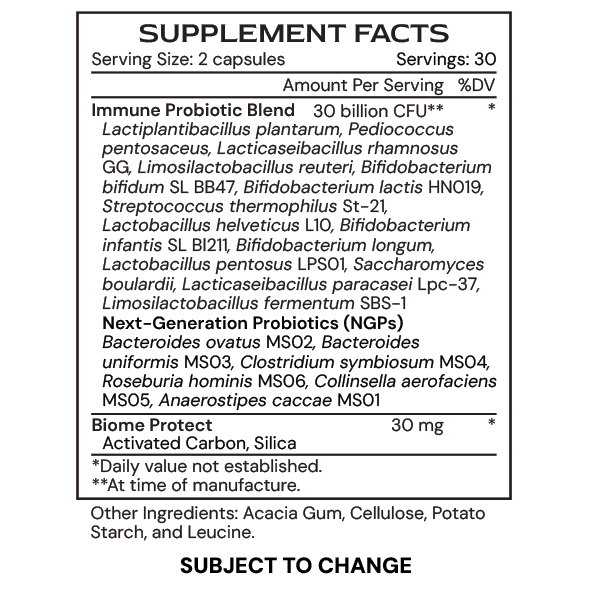
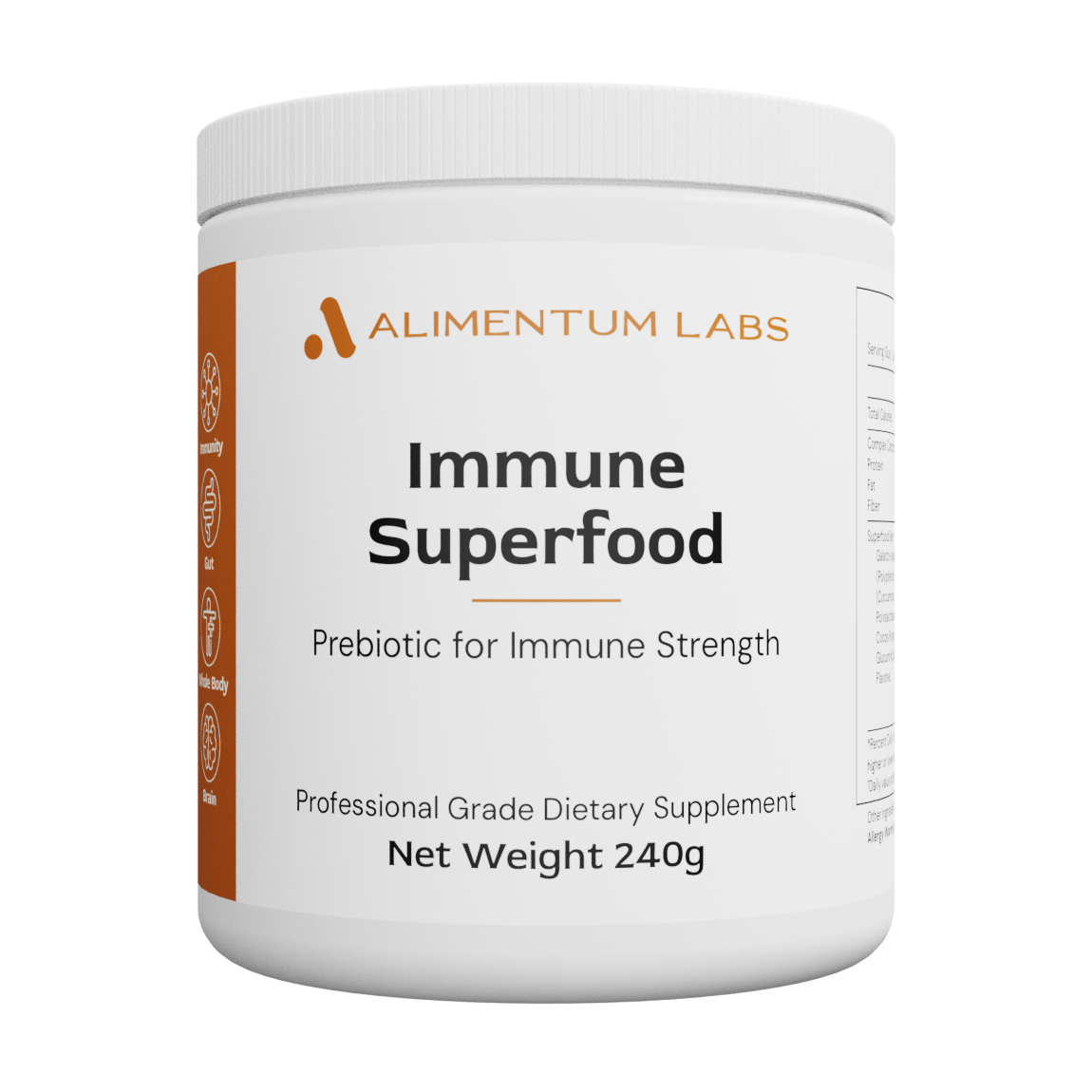
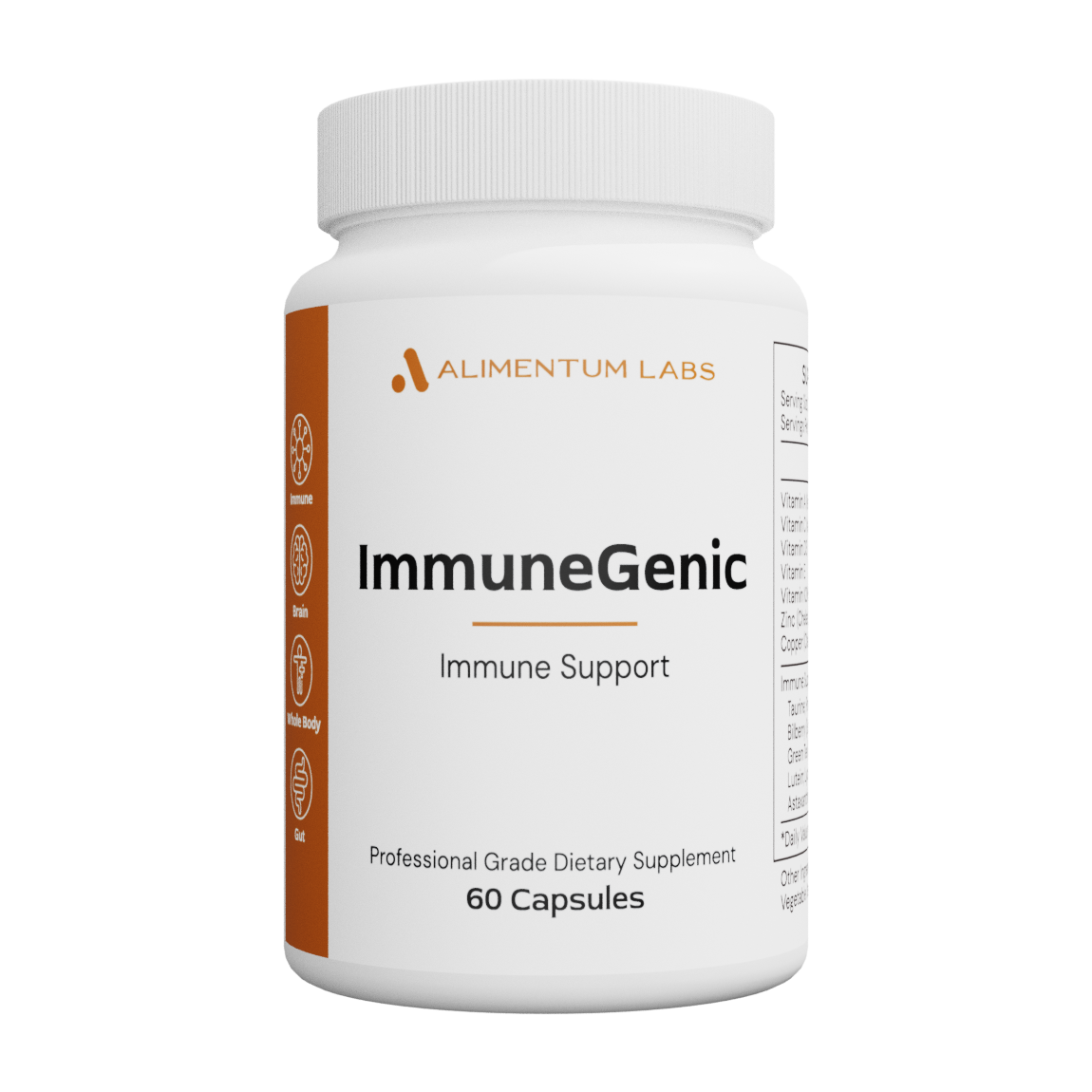
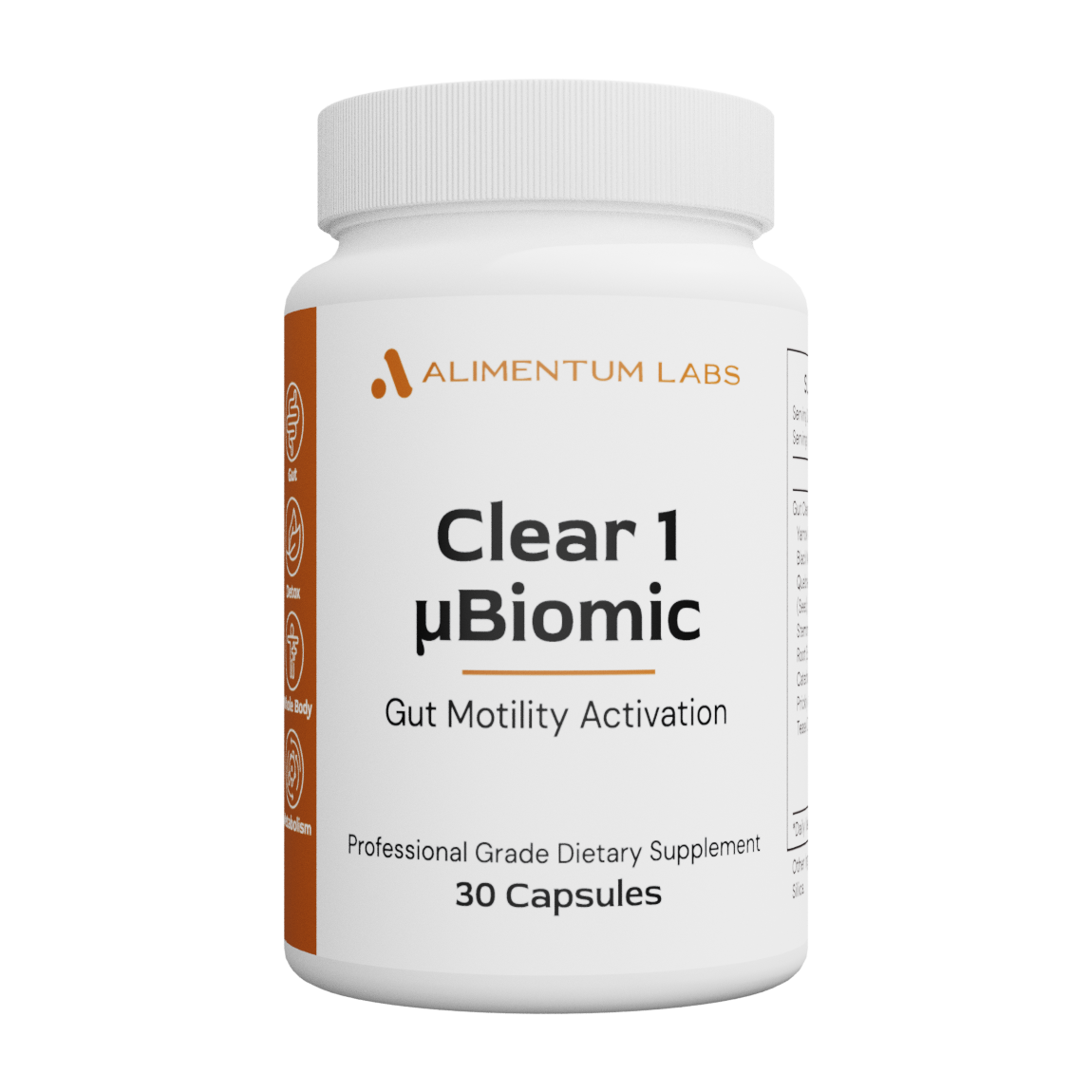
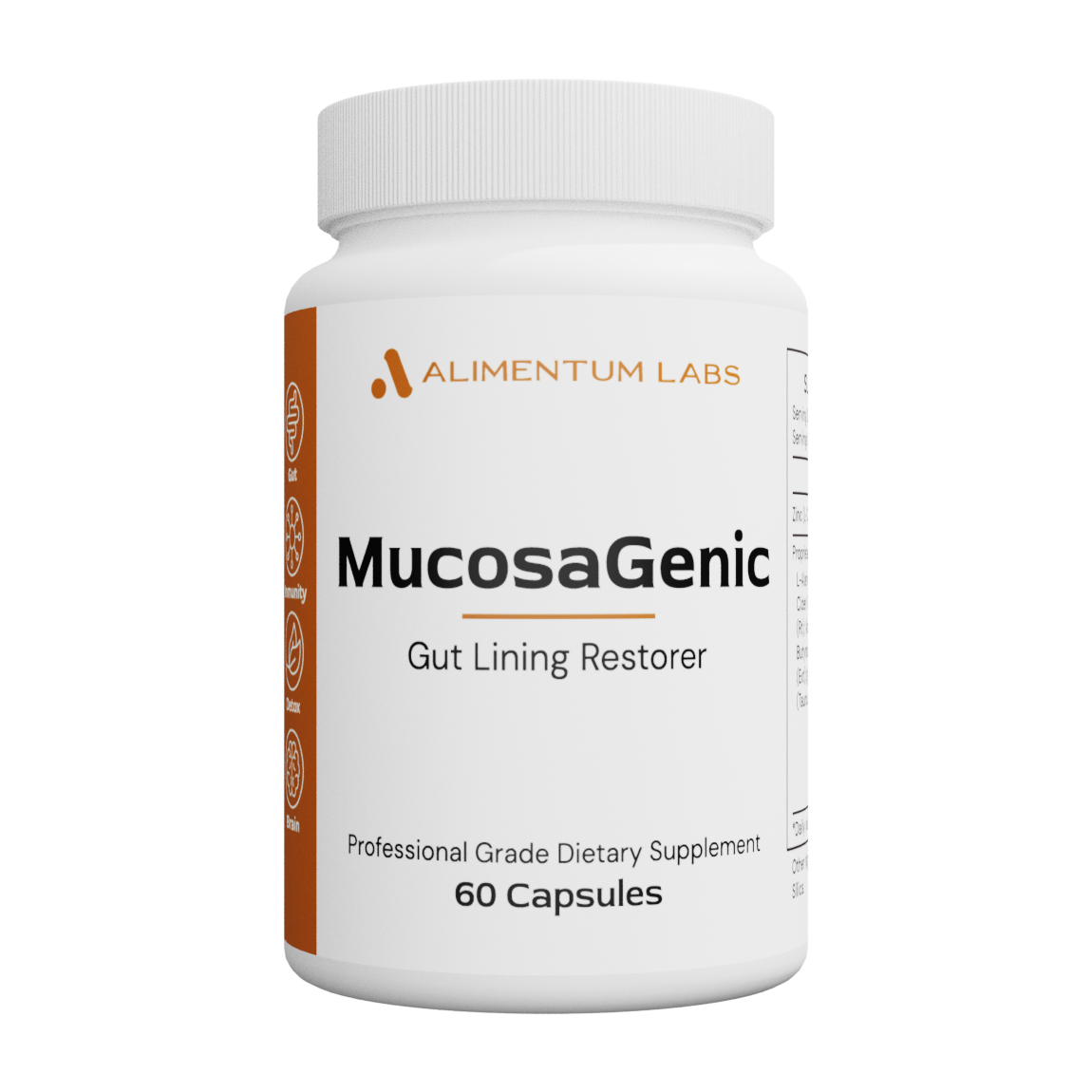
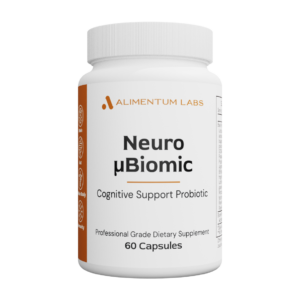
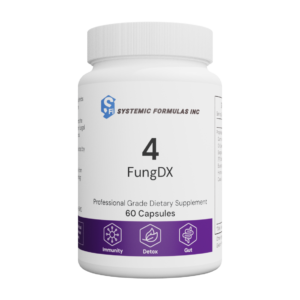
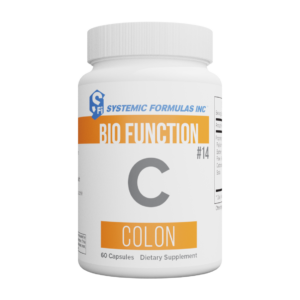
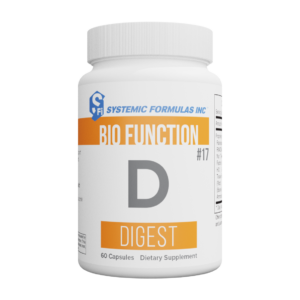

There are no reviews yet.